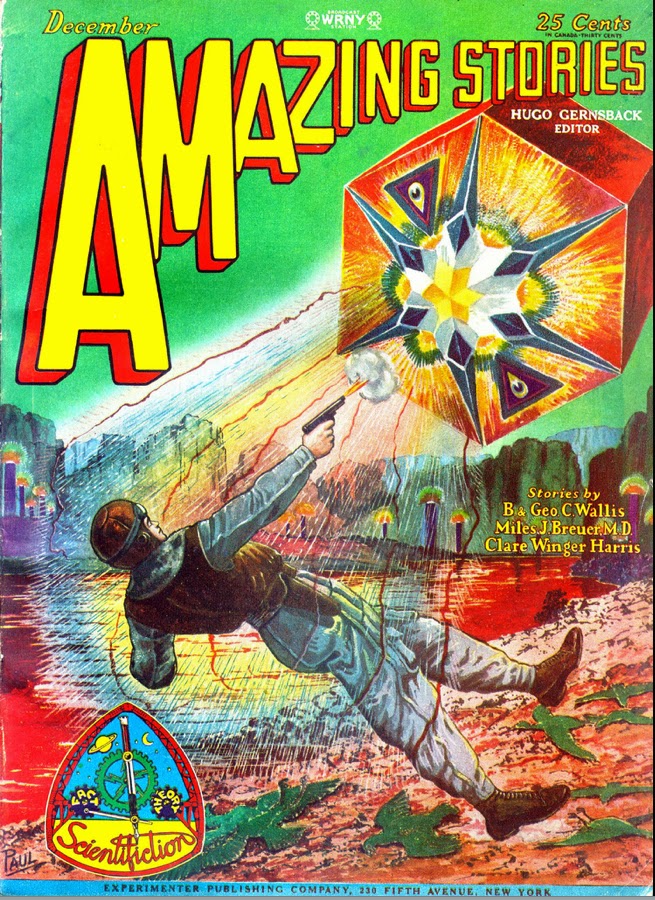THE FIFTH DIMENSION (2)
By:
May 7, 2023

HiLoBooks is pleased to serialize Clare Winger Harris’s “The Fifth Dimension” (which first appeared in Amazing Stories, December 1928) here at HILOBROW.
ALL INSTALLMENTS: 1 | 2 | 3 | 4.
I had just slipped my last pie into the oven and glanced casually out of the kitchen widow when I spied my neighbor, Mrs. Maxwell, on her cinder path between her house and the garage. Suddenly I had the same sensation that I had experienced at breakfast, “This has happened before. I know it.”
Then, like a flash, before a seeming darkness obliterated my fleeting memory, came the warning to my consciousness that Mrs. Maxwell ought not to enter her garage. I took a step toward the door with the intention of calling to Mrs. Maxwell. There was plenty of time; the path was long and she was not a third of the way to the garage. I watched her, my heart thumping wildly. She had stopped to pick up a scrap of paper. I took another step toward the door, then paused.
“Oh, what’s the use,” I argued, “she’d think I was crazy to run out there and attempt to keep her from her errand to her garage. I wonder why I have had two sensations of this memory enigma today! Often they are weeks, even months, apart.”
Resolutely I turned and left the kitchen, intending to finish my remaining housework. I reached the first landing of the stairs when the sound of an explosion that rocked the house to its foundation, caused me to start in wild-eyed terror. In a panic of fearful premonition I rushed to a south window. The Maxwell garage was a mass of roaring flames!
“It is fate, fate,” I groaned in my anguish. “There is no hope! We mortals cannot escape. The cycles of time like the wheels of the ancient Juggernaut ruthlessly grind us to our destruction and there is no hope!”
It seemed that for months after Mrs. Maxwell’s funeral I could not rise above a sense of despondency. A hopelessness was ever present in my consciousness, and nothing I did seemed worth the effort. Finally realizing that my present mental state must not continue, I plunged into domestic and social duties with a vim that was most unusual for me.
Not once during many months following the Maxwell tragedy had I experienced a single recurrence of my unaccountable memory flashes. Then one day the sensation returned.
RADIUM AGE PROTO-SF: “Radium Age” is Josh Glenn’s name for the nascent sf genre’s c. 1900–1935 era, a period which saw the discovery of radioactivity, i.e., the revelation that matter itself is constantly in movement — a fitting metaphor for the first decades of the 20th century, during which old scientific, religious, political, and social certainties were shattered. More info here.
SERIALIZED BY HILOBOOKS: James Parker’s Cocky the Fox | Annalee Newitz’s “The Great Oxygen Race” | Matthew Battles’s “Imago” | & many more original and reissued novels and stories.
